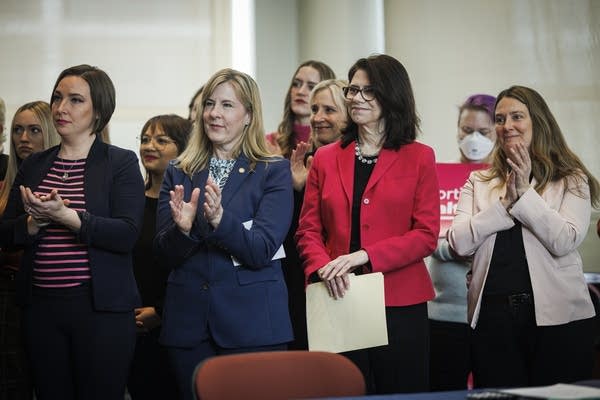Session fundraising lockdown doesn’t close off all avenues

House Speaker Melissa Hortman and Senate Majority Leader Kari Dziedzic, will be guests at a DFL Party fundraiser later this month. A law bans lawmakers from raising their own money during the legislative session.
Kerem Yücel | MPR News
Go Deeper.
Create an account or log in to save stories.
Like this?
Thanks for liking this story! We have added it to a list of your favorite stories.


